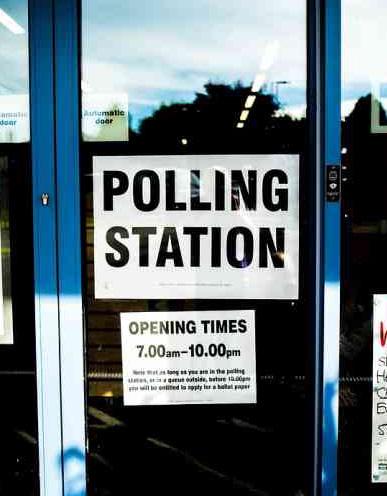
5 minute read
Tories lose two by-elections
The Conservative party have lost two of the three by-elections that were held on Thursday 20th June.

Labour won the Selby and Ainsty by-election, where 25-year-old Keir Mather overturned a majority of over 20,000 to become the youngest current MP sitting in the House of Commons. This is the largest majority Labour have ever overturned at a by-election. The seat was vacated by Nigel Adams.
Liberal Democrat Sarah Dyke won Somerton and Frome by more than 11,000 votes, overturning a 19,000 majority. The seat was previously held by David Warburton, who stood down after admitting to taking cocaine.
Boris Johnson’s former seat of Uxbridge was narrowly held by the Conservatives with a majority of just 495. The result was declared after a recount.
On a visit to Uxbridge, prime minister Rishi Sunak said that the result there showed that the next general election was not a done deal.
The government has announced a pay rise for millions of public sector workers.
Police and prison officers are set to receive a 7 per cent rise, teachers 6.5 per cent and junior doctors 6 per cent.
Treasury minister John Glen told parliament that he had accepted the recommendations of the pay review bodies.
The prime minister said the rises would not be funded by more borrowing or raising taxes.
Sunak said that the government would raise over £1 billion by increasing charges for migrants coming to the UK when they apply for visas and the levy they pay to access the NHS.
The pay awards for the education department are set to be fully-funded, but it is not yet clear how these will be achieved.
The rise for teachers and police will come into force from September and for doctors, dentists and police, the rise will be backdated to April.
Unite general secretary Sharon Graham said: “By accepting the pay review body recommendations and then not funding them the government is putting its departments between a rock and hard place - they now have to choose between paying workers a halfdecent salary or cutting services in already underfunded public services.”







South Yorkshire becomes UK’s first Investment Zone

South Yorkshire has been announced as the UK’s first Investment Zone.
Communities in Sheffield, Rotherham, Doncaster and Barnsley can now expect thousands of new jobs and £1.2 billion of investment as part of the UK’s first Advanced Manufacturing Investment Zone.
12 Investment Zones will be be established across the UK, based around a university and clusters of high growth industries like Advanced Manufacturing, life sciences or green industries.
The South Yorkshire Investment Zone is focused on Advanced Manufacturing and includes the University of Sheffield and Sheffield Hallam University. It is hoped that the Investment Zone will help leverage more than £1.2bn of private funding and help support more than 8,000 jobs by 2030.
Chancellor of the Exchequer Jeremy Hunt said: “Our first Investment Zone is a shining example of how we will drive growth across the country.
“It’s already secured more than £80 million of private investment, including backing from Boeing, and will help support more than 8,000 jobs by 2030.”
Secretary of state for levelling up, housing and communities Michael Gove said: “Today’s announcement is a significant moment for South Yorkshire as it becomes the home of England’s first advanced manufacturing Investment Zone. This will help level up the region, creating jobs and boosting economic growth.
“We want to build on South Yorkshire’s proud heritage so that it can make an even greater contribution to the UK economy. This is what levelling up is all about, promoting growth and providing opportunities so people can thrive in the communities they are from.”
First minister of Wales Mark Drakeford and Cornwall Council leader Linda Taylor have signed an agreement setting out a five-year action plan to work closely together on shared areas of interest.
The Celtic Heritage Cornwall-Wales Collaboration Agreement will focus on 4 areas: sustainable housing, achieving net zero, thriving rural economies, and celebrating culture and language.

First minister Mark Drakeford said: “We share many historical, cultural and linguistic ties with Cornwall, and our economies, landscape and our people have many shared characteristics. These commonalities enable us to learn from each other in areas which affect our populations, especially in the areas of focus in today’s agreement.
“I look forward to working more closely together, building on our strong relationship, sharing best practice and exploring other areas we can work together on in the future.”
Cllr Taylor said: “Cornwall has a proud Celtic heritage, and we have so many cultural links to Wales that it seemed clear to me that strengthening our ties would be of huge benefit for us both. I was delighted to find the first minister shared my enthusiasm for this, and we have been able to come to an agreement to formalise this relationship.
“Affordable and sustainable housing, the need to achieve net-zero and ways of growing thriving rural economies are key areas for both Cornwall and Wales, and to be able to share our knowledge with each other is ...
COLLABORATION News Issue 30.4 | GOVERNMENT BUSINESS MAGAZINE 9




Electric
Vehicles
The government has published new regulations for public electric vehicle charge points, which aim to improve the charging experience for electric vehicle drivers.

Priorities in the regulations include better reliability, clearer pricing, contactless payments and open data.
The regulations state that public charge points must take contactless payment within one year from the date the new regulations come into force.
A charge point operator must, within two years of the regulations coming into force, ensure that a person using any of its charge points is able to pay using a payment service provided by a third party roaming provider.
The regulations state that the network of rapid charge points must be, on average, reliable for 99 per cent of the time. This must be in effect within two years from the regulations.
Regarding pricing, a charge point operator must ensure that the total price for charging an electric vehicle through a public charge point is clearly displayed in pence per kilowatt hour either on the charge point or through a separate device which does not require a person to have entered into a pre-existing contract with the charge point operator.
Local authorities receive funding for walking and cycling prescriptions: READ MORE
Campaign launched to encourage free bus travel: READ MORE
1.5 million people using government One Login: READ MORE
Extension to free school meals in London: READ MORE
Initial Agreement on Scottish National Care Service: READ MORE
Emergency grab bags installed in York city centre: READ MORE
£20 million to tackle rough sleeping across London: READ MORE
Funding announced for councils to remove chewing gum from streets: READ MORE
£10 million funding for Bradford, UK City of Culture 2025: READ MORE
But the data also reveals that the main factor for increasing costs is now coming from wages rather than utility bills or raw materials.
The survey, by the BCC’s Insights Unit, of over 5,000 firms – 92 per cent of whom are SMEs – also reveals business performance across different sectors varies considerably, with hospitality and retail firms suffering more widely from cashflow difficulties.
The research took place between 15 May and 9 June and before the Bank of England increased the base rate to 5 per cent. Respondents were split into 27 per cent manufacturing and 73 per cent services industries, with 47 per cent exporting.
Growth in business activity remains weak, with no significant improvement to sales...

ECONOMY Issue 30.4 | GOVERNMENT BUSINESS MAGAZINE 11











